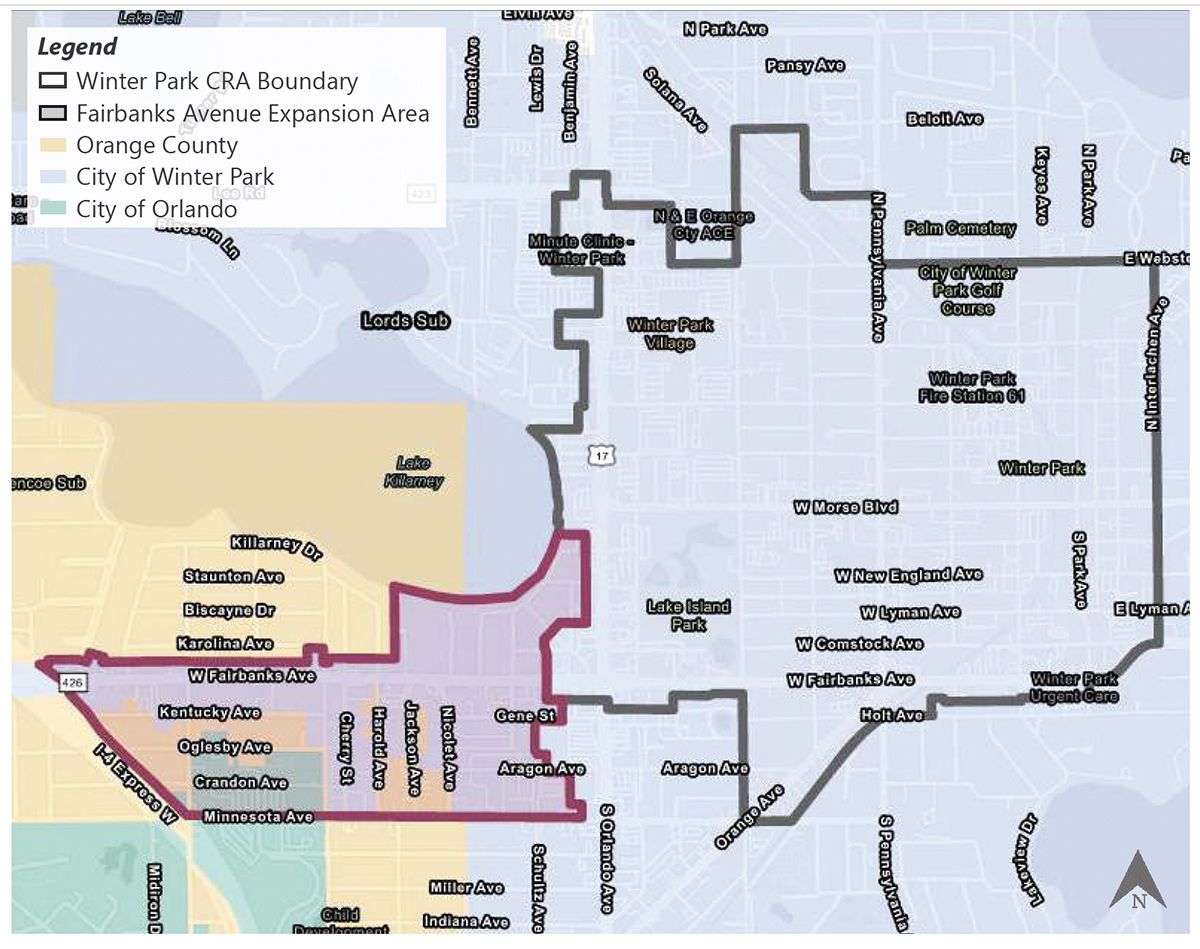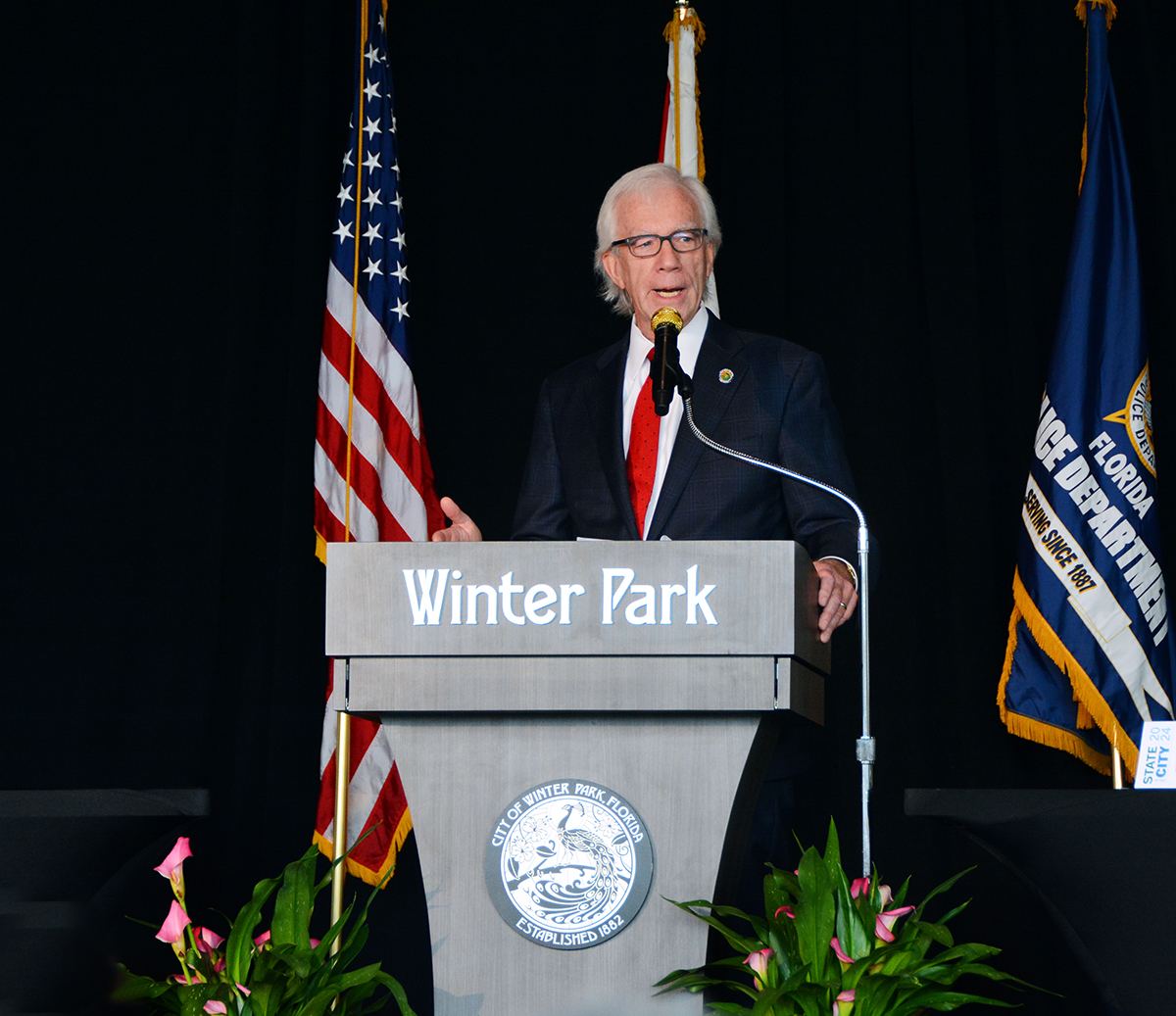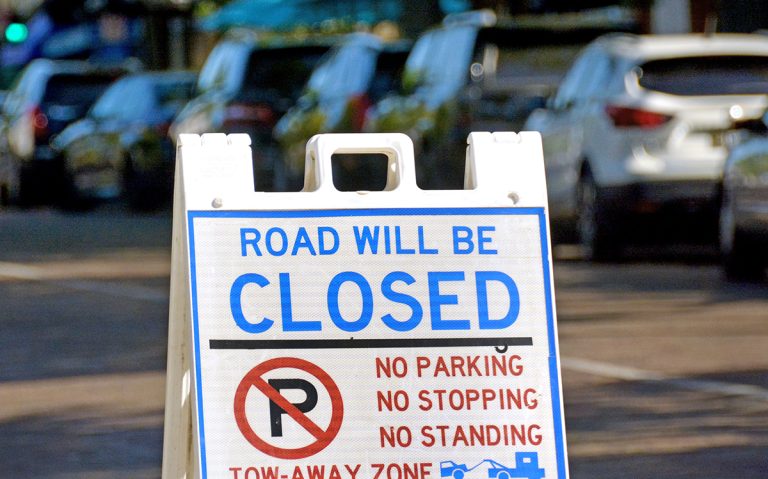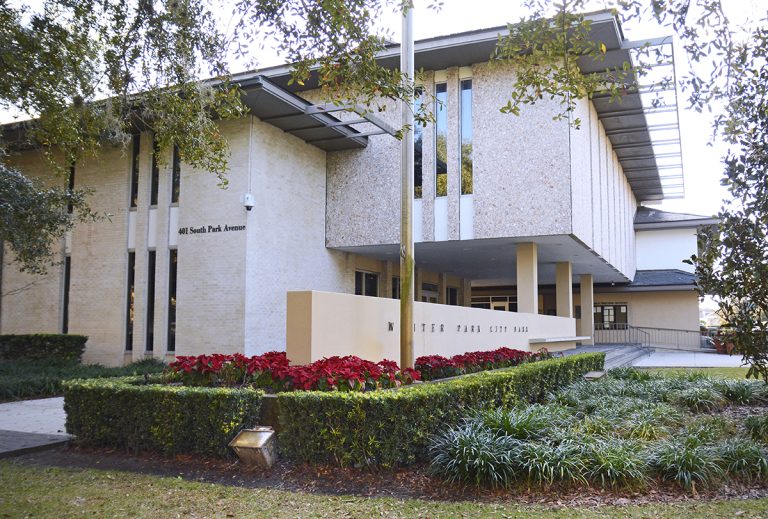Mayor Phil Anderson took his seat on the dais in Commission Chambers for the last time on Wednesday, March 27. He began his service to Winter Park in the role of City Commissioner from 2008 to 2011 before his victory in the 2021 Mayoral Election. In his final Mayor’s Report, he offered thanks to staff, commissioners and residents, along with a special shout-out to residents who make their voices heard during city meetings.
“I’d also like to thank everybody that steps up to the mic to speak,” he said. “We may not always agree, but this is what America is about.”
Anderson, who did not seek a second term, will be replaced next month by Vice Mayor Sheila DeCiccio, who won the March 19 election against her opponent, Michael Cameron.
The March 27 meeting also began a new phase in Winter Park’s Community Redevelopment Area (CRA) as Commission approved an amended Community Redevelopment Plan that expands and extends it through 2037.
The CRA, which is controlled by City Commission and one appointed county representative, was established in 1994 to foster development and economic growth. Projects are funded through Tax Increment Financing (TIF) which comes from a percentage of the taxes collected by the city and county within the CRA boundaries. Currently bounded by Lee Road and Webster, Interlachen, Fairbanks, and Orlando avenues, the CRA is scheduled to sunset in 2027; however, the proposed 10-year extension also adds an expansion area of approximately 142 acres bounded by the Fairbanks Avenue corridor, U.S. 17-92, I-4, and Minnesota Avenue.

The city and county have identified issues within the expansion area that can benefit from TIF assistance. The issues include:
- A lack of affordable housing
- Issues with stormwater and sanitary sewer infrastructure
- Outdated development patterns and parcel layouts
- Traffic and pedestrian safety issues
According to city documents, the existing CRA is projected to generate approximately $40.7 million in TIF revenues from 2024 through 2027. Tax increment projections over the next 10 years estimate the CRA and its expansion area will generate a combined revenue of between $141.2 million and $171.5 million.
The priorities of the proposed extension would continue the CRA’s mission within the original boundaries while addressing each of the four problem issues in the expansion area. “As we invest in an area, we expect the property values to go up and generate additional taxes that we may not have gotten if we hadn’t invested in the area,” said Mayor Anderson.
Commissioner Kris Cruzada pointed to the redevelopment of commercial areas, such as the former Winter Park Mall, as CRA successes that helped raise property values and bring in additional sales taxes. Commissioner Marty Sullivan added that CRA funding also provided the new Sunday schedule at Winter Park Library.
The proposed extension has also received pushback from residents who believe tax dollars should benefit the entire community rather than fund certain projects in smaller areas of the city. Opponents include former Winter Park Mayor David Johnston, who was in office at the start of the CRA. Johnston addressed commissioners during public comments, noting successful CRA programs that eliminated blight, reduced crime, and increased property values, but also citing the success of private enterprise in maintaining the city’s image. “(The CRA) has served its purpose and has outlived its stated need,” he said. “The CRA is to take care of blighted areas – I don’t see much blight in Winter Park.”
Despite objections, commissioners unanimously passed the extension which will go before Orange County Commission and the City of Orlando later this spring for agreement on delegation of authority and on the properties to be incorporated in the expansion.
Sinkholes and leaf blowers
Commissioners heard the findings of a study by engineering firm Terracon Consultants, Inc. on the risk of sinkholes around the MLK Park area. The study was in response to concerns stemming from the 1981 sinkhole, known as Lake Rose, that opened by West Comstock and Fairbanks avenues. The city also requested an assessment before adding parking spaces by the Events Center.
According to Terracon Senior Geotechnical Engineer Jay Casper, no elevated risks were found and minor collapses by the existing parking lot were attributed to surface issues caused by improper construction methods. No underlying geological problems were detected.
Winter Park’s gas-powered leaf blower ban also came up during the meeting. The final vote on the referendum ordinance had been tabled to the April 10 meeting, but the April 16 runoff election for City Commission Seat 2 means it would be presented to a panel of only four voters. Commissioners agreed to push the final vote to April 24 to allow a full Commission vote.
Mayor-Elect Sheila DeCiccio will be sworn in at the April 10 City Commission Meeting with the winner of the Seat 2 runoff to be sworn in on April 24. Information on city meetings and agendas is available at cityofwinterpark.org/meetings.



